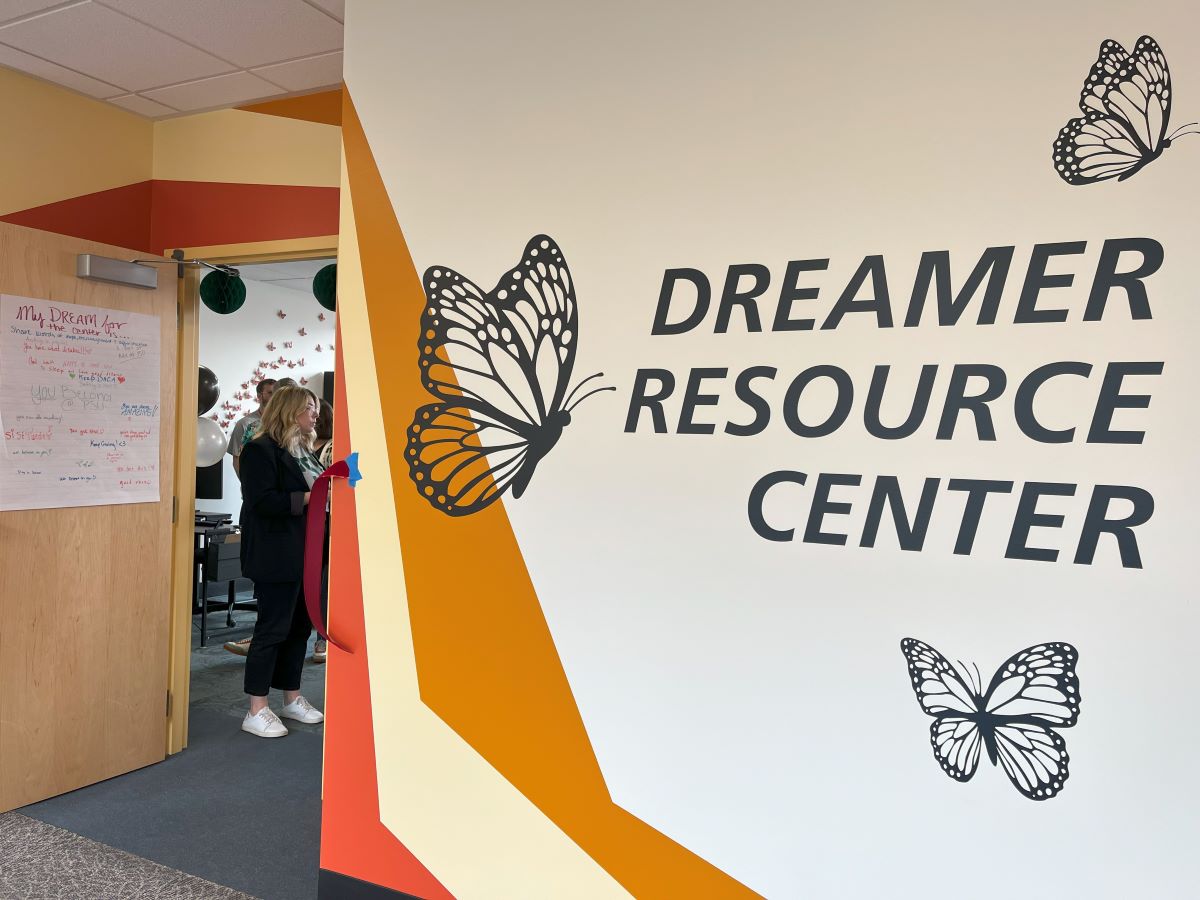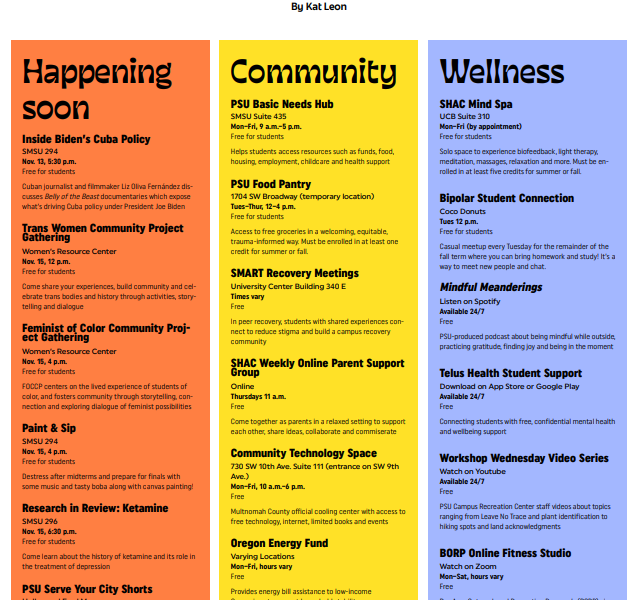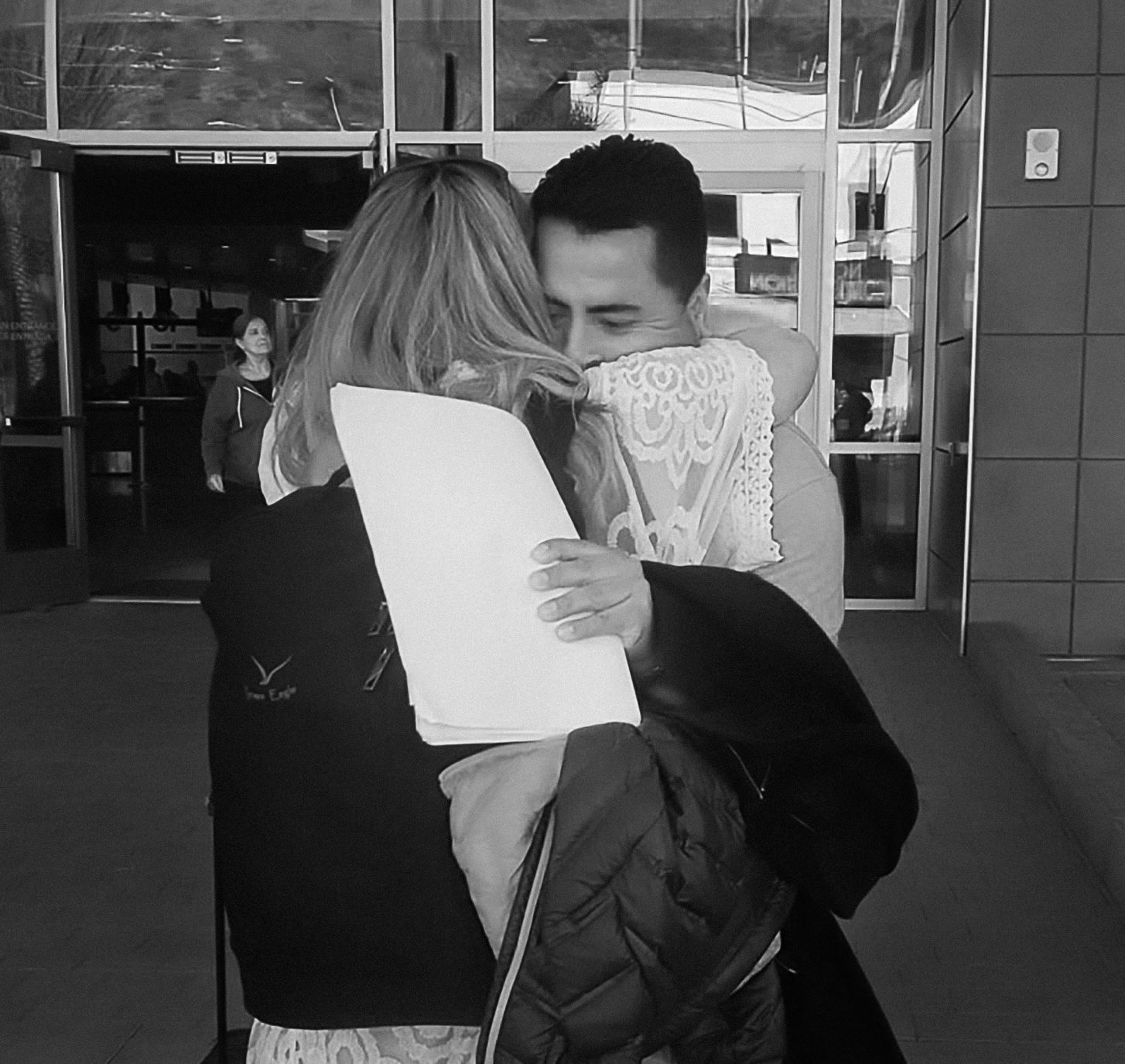Students, faculty and community members gathered in room 428 of Cramer Hall on Nov. 3 to celebrate the opening of Portland State’s DREAMer Resource Center. The center is a space dedicated to DREAMers, the Deferred Action for Childhood Arrivals program (DACA) recipients, those who are undocumented or mixed-status, immigrants and their allied communities.
Undocumented immigrants who arrived in the United States as children are referred to as DREAMers based on the 2001 DREAM Act (Development, Relief, and Education for Alien Minors Act). The most recent version of this legislation would provide people who arrived in the United States before age 18 with a pathway to U.S. citizenship contingent on enrollment in higher education, military service or three years of employment.
While no version of the DREAM Act ever passed, DACA was passed in 2012 and affords immigrants who arrived in the U.S. before age 16 with some legal protections. While the program does not lead to citizenship, it does protect recipients from deportation and provides two-year renewable work authorization.
In 2017, former President Donald Trump’s administration attempted to terminate DACA and imposed significant constraints on the efficacy and reach of the program. An estimated 22,000 people lost their DACA status in the first six months of this termination campaign, and renewals and new applications were entirely banned.
The center at PSU can trace its origins to when student leaders created the DREAM PSU club in 2017. Dr. Oscar Fernandez—a professor of university studies at PSU—explained how the goals of this club were “to academically support DREAMers at PSU, retain them and empower the university’s undocumented students and DACA recipients during the escalation of anti-immigrant sentiment across the country.”
President Joe Biden attempted to reinstate DACA with limited success. DACA has not accepted new applicants since 2017, but former recipients can renew.
Significant and ongoing barriers exist for people to access DACA’s benefits. For DACA recipients, some states—including Oregon—offer in-state tuition rates and state financial aid. However, DACA recipients are not eligible for federal aid, including federal health insurance, nutrition assistance or housing assistance.
When it comes to PSU, students of various immigrant statuses continue to face significant financial barriers to their education.
For example, a person seeking asylum in the U.S.—a process which is currently sitting at about six years just for an appeals interview—does not qualify for any federal or state financial aid. Nor would they qualify for student loans or in-state tuition at PSU, even if they have been working, paying taxes and living in Portland for the entirety of those six years.
According to PSU’s cost of attendance estimator, this student—hypothetically taking 15 credits as a freshman studying computer science—would be expected to pay $49,650 annually. This cost is insurmountable for the average college student without access to loans or aid.
Many people find themselves in similar situations of repressive bureaucracy, waiting for years to achieve stability, reasonable access to education and even the opportunity to visit their loved ones.
“If you have never tangled with the U.S. immigration system, consider yourself very lucky,” said Dr. Ame Lambert, vice president for global diversity and inclusion at PSU. “It is complicated, confusing, and cumbersome. It took me 11 years to become a permanent resident of the [U.S.]”
“The sense of hopelessness, the lack of agency and the uncertainty I dealt with as I went through that process are things I will never wish on anyone,” Lambert said.
“It is a lonely and hard place to be,” Lambert said. “I needed support, and I got it from creative legal minds, supportive administrators and a leader willing to invest in me. Our students also need support, and I’m so proud that PSU, GDI, ASPSU, our faculty, our administrative divisions and our community and colleagues are able to provide that kind of support to our deserving students through this center to our students who are trying to navigate these systems.”
The center offers various support services, including educational programming and workshops, volunteer opportunities, a study space, technology access, leadership development and one-on-one navigational support.
Ultimately, the center serves to foster connection, community and inclusivity. “For our DREAMer students, we hope they see this space as a wrap-around support system where they do not have to worry about disclosing [their experience] or [receiving] judgements based on their immigration experience,” stated Joanna Jauregui, the program coordinator for the center.
“We’re committed to making sure that students feel that they belong on our campus, that they believe in their potential, and that they become what they dream of becoming,” said PSU President Ann Cudd at the Nov. 3 celebration. “The DREAMer Resource Center underlines the importance of this commitment.”






